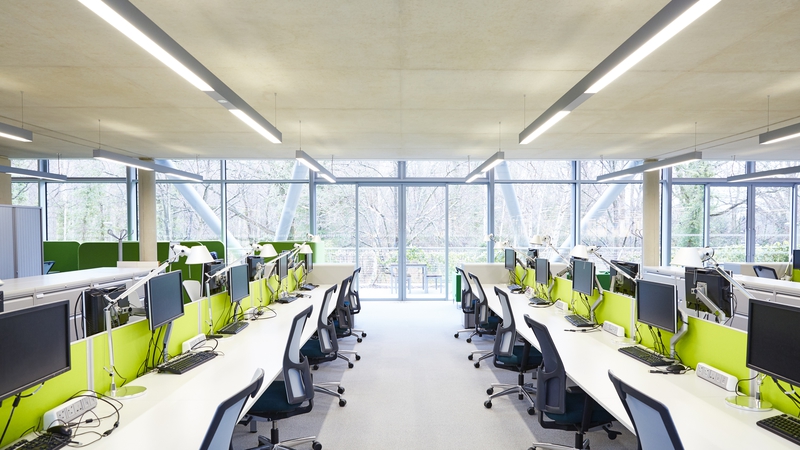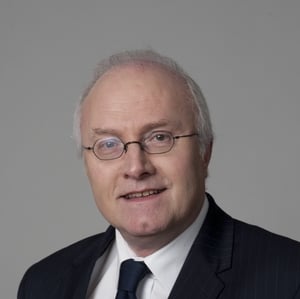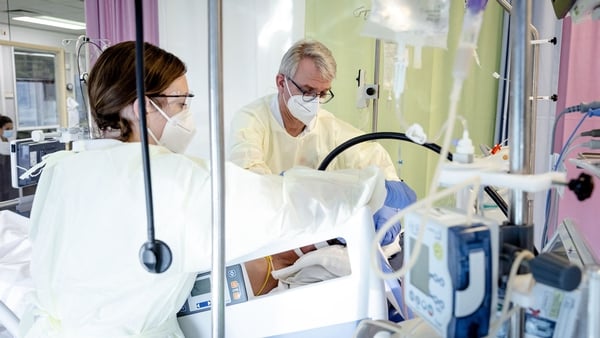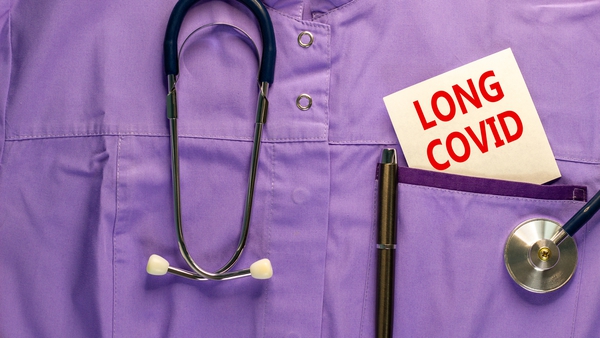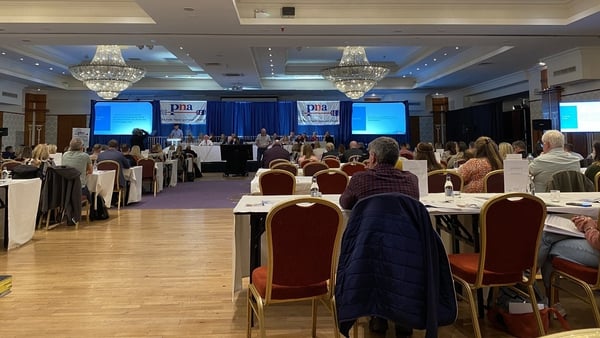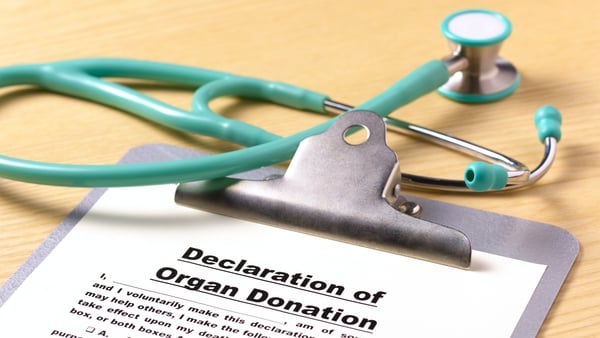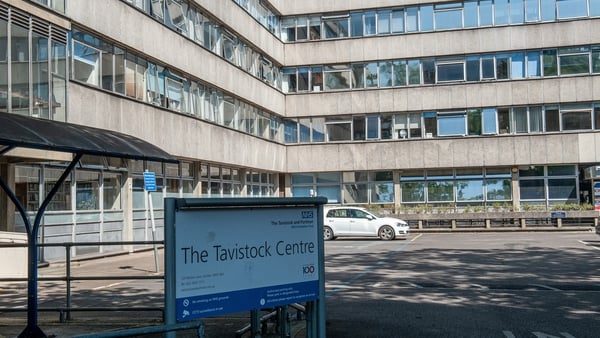The National Public Health Emergency Team has strongly advised the Government that people work from home, where possible, and that employers be supportive of the move.
It follows a meeting of the group today to review case numbers and advise the Government of any fresh measures that could help reduce the high levels of transmission.
NPHET has asked the Government to "consider reinstating previous advice to work from home where possible".
In its letter following today's meeting, public health officials also recommended ongoing communications targeted at employers and employees regarding protective measures in the Work Safely Protocol.
This covers staggered shifts and breaks, appropriate mask wearing, not attending if symptomatic, pod system for staff, and mitigation measures if sharing transportation.
The Government position since September has been for a return to the workplace on a phased and cautious basis for specific business requirements.
Government sources are indicating they do not see a divergence with the NPHET advice as reported, and that the message remains to return to the workplace only where safe to do so.
Indications from Government are that the latest recommendation will be considered by Cabinet next Tuesday, but there is no scheduled meeting yet of the Cabinet Covid Committee.
The advice is also likely to be examined by the Labour Employer Economic Forum and may require further consultation with unions and employers.
There are suggestions that the current 50% capacity in workplaces could fall back to 30% in what is described as a "retreat" by Government.
Earlier, Minister for Health Stephen Donnelly had said the Government was not actively considering a return to working from home full-time
Mr Donnelly also said the Government was not considering extending the Covid-19 vaccine passes to any other areas.
Speaking on Newstalk Breakfast, the minister said while the Government does not want to shut anything down to bring down the level of disease, he warned that in order to get it back under control people must reduce their social contacts.
Call for clarity from Government
Employers and unions say they need urgent clarity from Government about their advice on working from home.
Neil McDonnell of ISME said they need clear Government communication on the issue but he said a return to working from home could have a serious impact on some sectors
He said: "We're not really sure the significance of this advice. It adds very little to the Government advice that was given on the 22nd of October last to work from home and only to return to offices on a phased cautious basis for specific business requirements.
"So it's very unclear. I think there's a need for very clear Government communication."
Patricia King of the Irish Congress of Trade Unions also called for clarity but she said the Government should take seriously and follow the public health advice.
She said: "I think if NPHET deems it necessary to give this advice, then it behoves us all to support the public health advice. Congress has always taken the view that we should support public health advice.
"So I hope that the Government takes this into account and doesn't disregarded it."
Read more: Latest coronavirus stories
Chief Medical Officer Dr Tony Holohan said yesterday that the Department of Health had taken a leadership role in re-instating its work from home policy in full recently.
The department had required people to come into work once a week, but this was suspended a week ago.
Dr Holohan pointed to work by NPHET's UK equivalent - SAGE - that to reduce workplace transmission, it saw working from home as the key next measure.
There was controversy last month when Deputy CMO Dr Ronan Glynn urged people to work from home where possible this autumn and winter, and questions were raised as to whether this was different to the return to workplace advice of Government.
The latest figures from the Economic and Social Research Institute show that 50% of people are working in workplaces at present.
The ESRI surveyed 2,000 people last month and found that 27% of workers were primarily working from home.
It found 23% of the employees said they were back in the workplace, but not as often as before the pandemic.
Meanwhile, Minister Donnelly said there have been 25,000 new Covid cases identified in the last week, which equates to around one in every 200 people.
The minister acknowledged that with reducing social contacts it is not as simple as "picking one individual thing" and saying "this can or cannot happen". He said instead people should choose what is important to them.
Separately, he said, while Covid-19 vaccination passes make things safer they would not be brought in to other areas.
"In terms of regulation or Government policy that is not something we are looking at," he said.
Elsewhere, the Covid-19 advisor to the Irish College of GPs has urged people to adjust their behaviour in order to turn around infection rates.
Speaking on RTÉ's Morning Ireland, Dr Mary Favier said that despite soaring infection rates the health service is "holding steady, just", but everything in the health system is under strain and said "we really do need to look at how we want to achieve things in the next number of weeks and into Christmas".
She called for a return to social solidarity in the coming weeks, saying a peak in the current wave of infection might not happen before December.
Dr Favier said people need to look at how to manage social interactions and gatherings "and just try and do less in the next week or two".
Additional reporting Mícheál Lehane and Sandra Hurley
